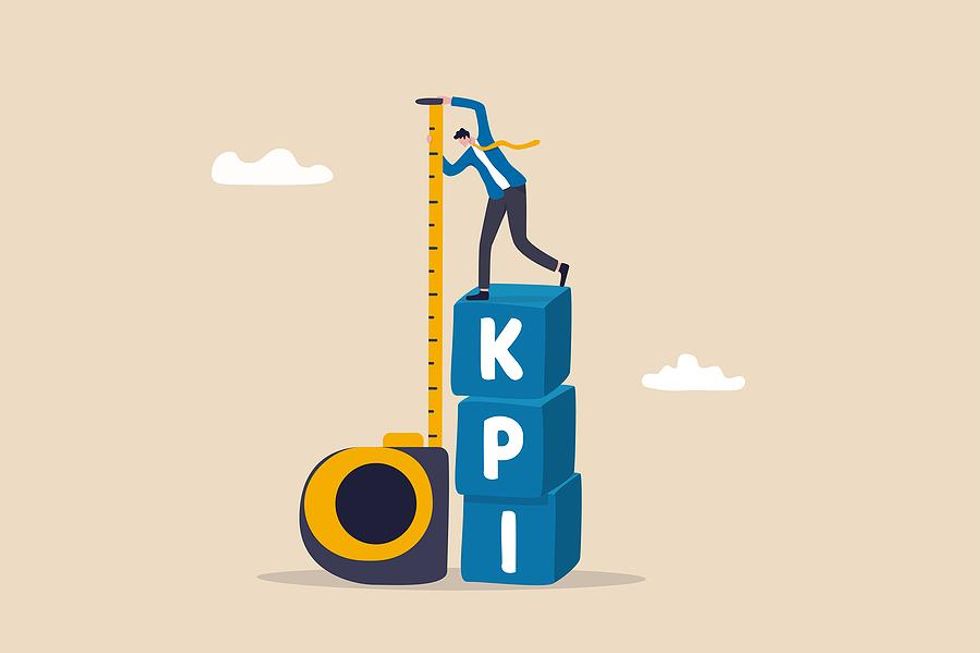
A performance review usually isn't something employees or managers look forward to. But it's an essential part of the business—to discuss performance and give feedback with the intention of helping the employee and the company as a whole. If you're the one conducting the performance review, how can you ensure it's a productive conversation?
We recently asked our executives what their performance review dos and don'ts are.
Here are their responses...
John Schembari, Senior Education Executive
Make the evaluation process as grounded as possible in evidence of practice/what is empirically observed. The use of performance rubrics that delineate and explain different levels of proficency can help to ensure that quality of work is being evaluated as opposed to personality.
If there are several individuals evaluating staff in similar roles of like function ensure that there is inter-rater reliability and, thus, equity in how performance is measured. Determine a common definition of quality performance and success across the organization. In the review, highlight both the practices that the employee should continue doing as well as those that should be refined. If possible, allow the employee an opportunity to discuss both their successes and determine how they will address practices to be refined as well as deliverables/due dates.
Don't wait until the next review to follow up with the employee. Provide resources that address growth areas and check back on a regular basis.
John Schembari is a current K-12 teacher/school leader academic improvement coach and former school building and district administrator. He loves to draw, travel, swing dance, and read nonfiction.
Ana Smith, Talent Architect & Global Learning Strategist

Image from Bigstock
Top performance is the way in which organizations grow, evolve, and compete. The same goes for employees of all levels. Yet one key ingredient is delivering performance feedback, which for managers and leaders can feel quite difficult and filled with stress. And all of this in addition to the current inflation, burnout, and a hot talent market that has employees quitting in droves.
We know from vast research on feedback that if you don’t deliver tough, healthy feedback—if you just let people "skate by"—it has a demotivating effect on strong performers and team players.
One important trend which has taken place for the past decade or so is eliminating year-end reviews. The rationale behind year-end reviews is to understand and measure the accomplishments and quality of work from year to year.
Focusing throughout the year on having good, quality performance coaching conversations with a specific cadence is what makes the difference. If this is the approach, for the vast majority of people, the year-end review becomes just another good performance conversation—a summary of what you’ve talked about throughout the year.
Ana Smith helps people & organizations achieve their full talent potential by developing and co-creating people strategies and customized solutions, and turning them into impactful outcomes and collaborative relationships, using coaching as the "red thread."
Michael Willis, Sports Business Operations Executive

Image from Bigstock
A performance appraisal is an evaluation done on an employee's job performance over a specific period of time. It is the equivalent of a report card on an employee and how their manager assessed their performance over the prior year.
A performance appraisal should motivate an employee to better performance by helping them understand why they need to move away from poor performance or toward critical objectives.
360 Feedback Evaluation
I like the 360 degrees form of appraisal where employees are evaluated by colleagues, customers, subordinates, and other connected managers. The 360 feedback allows the employees a glimpse of how others view their performance in various relationships critical to the job.
I think everyone's work and evaluation should be aligned to 3 factors:
- A company's mission
- A company's goals
- A company's competitors
This evaluation should factor in the company's competitors:
- Current competitors
- Future competitors
- New market entrant competitors
Michael Willis has 18+ years of experience working with accounting & sports organizations and has managed P&Ls of $10M - $125M+ with budgets of $3M-$50M+. He worked for the NFL for 22 1/2 years, mainly with the game officials working on the financial/accounting side of the business.
Melodie Turk, Learning Experience Executive

Image from Bigstock
Do not give surprise feedback during a performance review.
Do summarize all the accomplishments and the improvement work done throughout the year.
Many years ago I had a boss that set up quarterly development meetings with each employee. We were both expected to answer two questions about ourselves and the boss. They were: "What am I doing well? What could I improve on?" and "What are you doing well? What could you improve on?"
It's a framework I continue to use to open up the conversation on both sides for constructive feedback that works both ways. The valuable conversation plus the frequency made it very easy to prepare for the annual performance review—and there are no surprises.
Melodie Turk is a learning experience executive with a unique background in the learning and development arena as well as change management. She is passionate about bringing change to the workplace—change that is meaningful and change that will last.
Don Schulz, Senior Operations & Commercial Real Estate Executive

Image from Bigstock
In my experience in leading people and teams, the key to performance evaluations is to make them an ongoing process. They should not be a point-in-time event but rather a more regular occurrence, integrated into the normal rhythm of business. This maintains transparency and ensures there are no surprises. Use regularly scheduled one-on-ones as the primary forum for discussing it. Feedback should flow both ways between employee and manager as appropriate.
It is also worth mentioning the timeliness of this question. I just returned from a national veteran’s charity event in Florida where this exact topic came up in conversation with some veterans. While none of them expressed the least amount of joy in the administrative aspects of completing performance evaluations, all of them expressed one shared belief: the importance of regular, continuous, ongoing feedback and how it is critical to maintaining high-performing teams, effective alignment, and a collective focus on mission.
While the level of criticality in the military varies from the civilian work world, the principles still apply—people stay more properly oriented toward an organization’s collective goals, display greater engagement, and deliver better results through regular performance feedback and a more transparent understanding of their individual contributions, both positive and negative.
Don Schulz is a 25+ year commercial real estate executive & COO. On the personal side, he likes to ski, hike, golf, and run, and is an occasional homebrewer.
Kathleen Duffy, Founder, CEO, And President Of Duffy Group

Image from Bigstock
Performance reviews should be a time of self-reflection for the employee and an opportunity to set professional goals for the upcoming year. We look at KPIs each month and have found when the employees look at them through the lens of their goals, the discussions take on a tone of continuous improvement.
Within our framework, here are examples of a few questions we ask:
- What one or two skill areas are you going to focus on or continue to focus on to improve as a leader?
- What will be the impact for you if you do improve in this skill?
- What will be the impact on the company overall if you do improve in this skill?
- What do you need to focus on doing/not doing, feeling/not feeling, to be a better leader in 202X?
- How can I help you?
I don't want to give the impression that we avoid tough conversations. We have them in real time and don't wait until the performance review.
Kathleen Duffy is the founder, CEO, and president of Duffy Group. The company's vision is to elevate recruitment research as an alternative to contingent and retained search. Since its founding, Duffy Group has been a remote workplace and a culture of work/life harmony.
Stan Hammond, IT Cyber Executive

Image from Bigstock
A performance review is official and engages HR. It is essential to treat your staff with respect and dignity. Two rules and/or ideas:
1. Never bring up a subject (especially negative) during the official performance review that you have not presented and discussed unofficially before the meeting.
2. Use the process to get to know your staff better and to build camaraderie. Ask about something they have accomplished this past year that you may not know about. Share positive feedback you have received from other leaders/team members. (This may take proactive work on your part to prepare for the review.)
Stan Hammond is an IT cyber executive with decades of experience leading billion-dollar corporations and government agencies, including ServiceNow, the State Department, Veterans Affairs, Charter, GKN, Baxter, Caremark, and Pfizer, with cutting-edge technology.
Lisa Perry, Global Marketing Executive

Image from Bigstock
Sixty-nine percent of employees say they would work harder if they felt their efforts were better recognized according to a survey by Officevibe. The truth is what makes the difference is the little things that you do throughout the year for your employees that can make an impact; from keeping track of your employee’s development, providing support to setting them up for success.
Here are five dos and don'ts of performance reviews.
- Define Objectives & Expectations: Don’t forget to define your objectives and expectations. I’ve used SMART (specific, measurable, achievable, results-oriented, and time-bound) objectives for years. But I’ve just started to now use OKRs (objectives and key results), a collaborative goal-setting methodology used by teams and individual employees to set challenging, ambitious goals with measurable results.
- Provide Frequent Feedback: Don’t give feedback once a year. Provide coaching conversations that people welcome on a regular basis. This will help your employees stay focused, meet their goals, and grow professionally.
- Two-Way Discussions: Don’t make the review process one way, top down, and behavior focused. Focus the performance review on results and make it as much of a 360-degree review as possible. Employees need to feel like they’re being heard and valued. Include the boss's assessment, employee self-appraisal, and peer reviews in a meeting in which both parties can share their observations, perspectives, and comments about job performance.
- Provide Facts: Don’t provide vague feedback. Provide well-documented facts for both good and not-so-good results. Everything should be backed by facts.
- Action Plan: There is no follow-up to the performance review with an action plan. Develop an action plan with set goals, areas for improvement outlined, support detailed, and deadlines to evaluate the progress. Keep it simple and positive, and express your confidence in their ability to improve.
With these tips, your review discussions with your employees will be a natural extension of the coaching that they receive. Remember, your team should be supported and listened to. Be open to receiving feedback as well.
Lisa Perry helps companies build leadership brands, driving loyal customers & delivering profitability. She does this through a process that builds brands consumers love. Her goal is to help companies develop, monetize, and grow their brands.
What are some other performance review dos and don'ts? Join the conversation inside Work It Daily's Executive Program.
- 5 Performance Review Tips ›
- Why Performance Reviews Are Important (And Helpful) ›
- 10 Mistakes New Managers Make At Work ›
- 3 Ways Companies Should Manage Their Online Job Review Pages ›
- How To Tell An Employee They’re Underperforming - Work It Daily ›

 Bigstock
Bigstock Bigstock
Bigstock Bigstock
Bigstock


